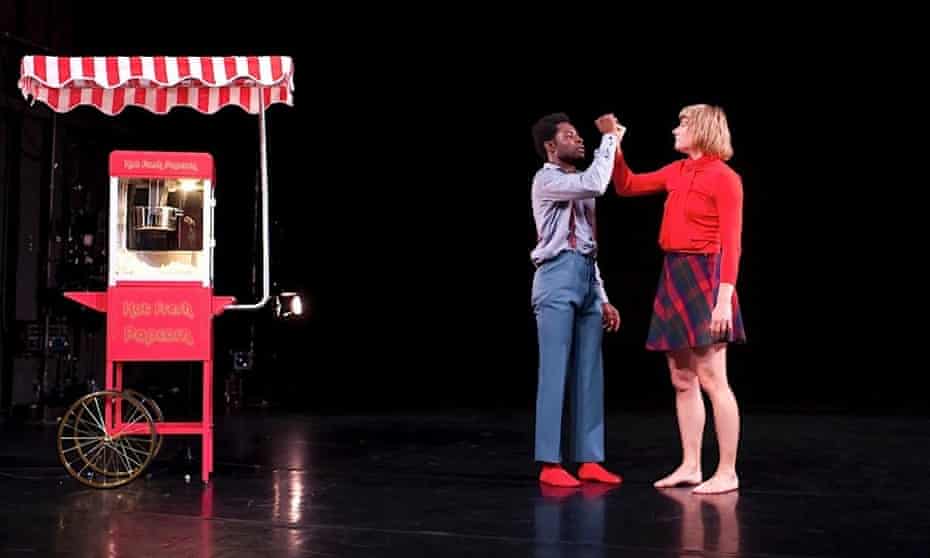Freddie Opoku-Addaie is celebrating his new occupation as inventive director of Dance Umbrella pageant, but he is not sure regardless of whether there will be a reside festival to immediate this year. The 2021 celebration is not scheduled until finally October, when he is hopeful theatres will be back in business, but there could be curveballs – if an intercontinental artist is coming as element of a tour, for instance, and has to quarantine between nations. “Hopefully, fingers crossed, at least some of it can be are living,” he states.
Opoku-Addaie is only the fourth inventive director in Dance Umbrella’s 43 a long time, next Val Bourne, Betsy Gregory and Emma Gladstone. The once-a-year London festival is a dependable spotlight in the dance calendar, from its early days offering the initially publicity to Mark Morris, Anne Teresa De Keersmaeker and Michael Clark to new many years uncovering modern ice skaters Le Patin Libre and acclaimed choreographer Oona Doherty.
Opoku-Addaie’s mission is to “widen the centre”, that means to broaden the plan of what mainstream modern dance is: what it looks like, who would make it, where by we see it and how it interacts with other art kinds. He not only wishes to come across the new, but to price the artists who are neither “hot young things” nor establishment names. “I’m definitely fascinated in artists who blew up and then they went quiet – they are even now out there accomplishing amazing things, they’re still producing interesting function.”
You could say the 40-12 months-previous is just one of individuals himself. Born in east London, he put in time in Ghana as a child and discovered dance at Newham Sixth Sort School. He danced with Wayne McGregor and Candoco and then commenced to choreograph function that is witty, playful, questioning and fond of props. He was 2 times a finalist in the Spot prize, memorably for 2010’s Fidelity Challenge, a duet with Frauke Requardt involving a popcorn device, but outsiders to the modern dance planet could effortlessly have dropped track of him considering the fact that then.
Some of that time was used as a guest programmer for Dance Umbrella under Gladstone, in which he was passionate about championing artists underneath the radar, primarily those people on his doorstep. “I feel London is the greatest town ever, it’s numerous in its variety,” he says. “There’s a breadth of artists I definitely want to aid on to the international stage. We require to shout about our artists carrying out astounding operate. The new music scene and other sectors are additional vocal about that, we could do it a whole lot much more in dance.”

Dance could be vocal in other strategies far too. Dance people today are notoriously good, he states. “Maybe at times we’re a bit also nice” – when it comes to finding paid out properly, for instance, or talking up about a process that leaves the the vast majority of its artists dwelling precariously. From time to time he’ll listen to someone referred to as currently being difficult to operate with. “Why are they complicated?” asks Opoku-Addaie. “Is it simply because they don’t want to get the job done in this way, in this framework? Probably we need to have to adapt.”
When it comes to diversity – irrespective of whether Bame, LGBTQ or disabled artists – Opoku-Addaie is calling time on “the three Ts”: tick-box, tokenism, tolerated. “So it’s not just one in, just one out,” he says. “I’m in this new purpose, but it suggests people not turning their backs and stating, ‘That’s terrific, he’s the first black artist to lead Dance Umbrella, everything’s good.’ Almost everything is certainly not good. How do we transfer items ahead beyond, ‘OK, we have acquired one particular in’? It’s a broader discussion.
“There’s additional listening heading on, and which is what I’m heading to do as perfectly. So we are not just tolerating – for artists to make thei
r best do the job we have to go over and above that, they need to know you have got their backs and you’re with them.”
Opoku-Addaie’s ideas about adjust also go over much more imaginative programming – juxtaposing hip-hop, traditional African dance and ballet, for illustration – generating the sector additional self-sustaining, and offering artists “invaluable slack time” to acquire beyond the conveyor belt of eternally developing the next display. The put up-pandemic landscape could present an opportunity to redraw the image.
“This is the time when artists, creatives and audiences can truly reimagine how we exist,” he suggests. “So it’s truly fascinating. We have been by way of difficult situations – what could be much more complicated? By comparison, this is not a possibility. The risk is that we don’t do it.”
He is all set to participate in his aspect. “Festivals, particularly Dance Umbrella, seize people’s creativeness, and give a sense of …” He thinks for second. “‘Hope’ sounds a bit cheesy. But they galvanise us to do a little something more substantial than ourselves.”
